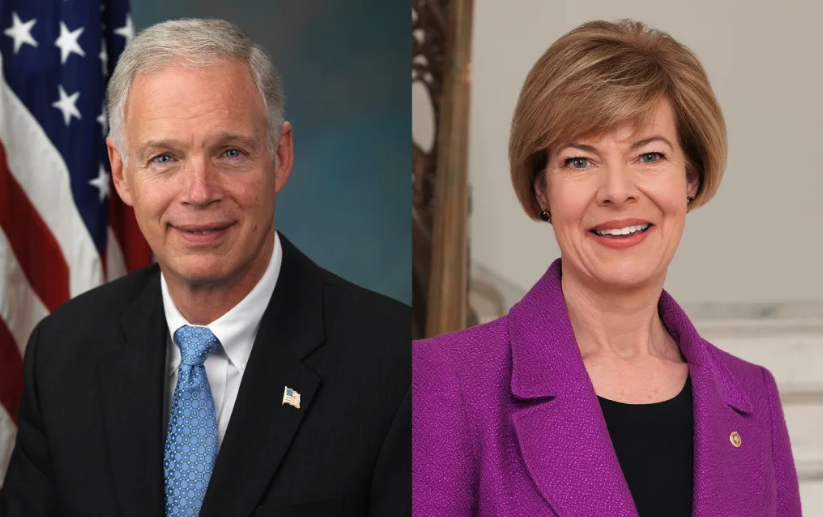Editor’s note: The following story has been shared for publication by The Badger Project, which, according to its website, is a nonpartisan, citizen-supported journalism nonprofit in Wisconsin. A link to the publication is here: https://thebadgerproject.org.
By Peter Cameron/The Badger Project
A bipartisan supermajority of senators, including one from Wisconsin, approved a $95 billion national security package early Tuesday, Feb. 13, morning that included aid to Ukraine and Israel.
It passed out of the U.S. Senate with a vote of 70-29.
The bill now goes to the U.S. House, which is controlled by a tiny Republican majority. Former President Donald Trump has called for Republicans to oppose the bill, and it faces an uncertain future there.
By comparison, the U.S. spends more than $800 billion per year on its own military.
The aid package split Senate Republicans nearly in half, with 22 voting to approve the measure and 26 voting against it. Sen. Ron Johnson, Republican of Wisconsin, joined those voting no.
Senate Minority Leader Mitch McConnell of Kentucky and the #2 Republican in the Senate, John Thune of South Dakota, each voted in support of the aid package.
Johnson had worked to block the bill, against the wishes of his party’s leadership.
“We’re not helping Ukraine at this point in time,” Johnson told Politico on Monday , Feb. 12, before the vote. “We’re fueling a bloody stalemate. It makes no sense.”
Ukraine has repeatedly asked for more military aid to defend against the invading Russian forces. Ukrainian President Volodymyr Zelensky has visited the U.S. three times since the war started in 2022, the most recent in December, to request assistance in fighting the war.
Also on Monday before the vote, Johnson appeared on the social media platform X, formerly known as Twitter, to discuss the aid package with Elon Musk and other Republicans who opposed it.
Sen. Tammy Baldwin, Democrat of Wisconsin, voted in support of the aid package.
“Our bipartisan legislation will help Israel and Ukraine defend themselves in wars for their freedom and future, while delivering needed food, water, and aid for the innocent civilians caught in the crossfire of these global conflicts, including those in Gaza,” Baldwin said in a press release. “I was proud to help ensure that this aid is used in line with our values and international law and that the American people get the transparency they deserve.”
She also emphasized provisions in the bill that aim to prevent the smuggling of the deadly drug fentanyl into the U.S.
The aid for Ukraine and Israel has opened a huge split in the Republican Party, and a much smaller one in the Democratic Party.
While nearly all Democrats voted in support of the aid package, Sens. Jeff Merkley of Oregon and Peter Welch of Vermont, as well as Bernie Sanders, an independent from Vermont, were the only non-Republicans to vote no.
The dissenting liberal senators objected to the $14 billion portion of the aid package that would go to Israel.
“As long as this bill contains money to fund Netanyahu’s cruel war, I will do everything I can to oppose it,” Sanders said in a press release. “I urge my colleagues to do the same.”
The bill does provide billions in humanitarian aid to civilians in war zones across the world, including Gaza and Ukraine.
The large bill includes the following:
• FEND OFF Fentanyl Act, legislation to disrupt the flow of fentanyl into the U.S.
• $9 billion in humanitarian assistance to provide food, water, shelter, medical care, and other services to civilians in Gaza, the West Bank, Ukraine, and populations in conflict zones across the globe.
• About $5 billion to support key regional partners in the Indo-Pacific and deter aggression by China.
• $14 billion in security assistance for Israel.
• $60 billion to support Ukraine against the Russian invasion.
• $2.4 billion to support military operations in the Red Sea, where rebels in Yemen have attacked ships.
• $481 million to continue support for Ukrainians displaced by the invasion.
• $400 million for the Nonprofit Security Grant Program to help nonprofits and places of worship make security enhancements.
